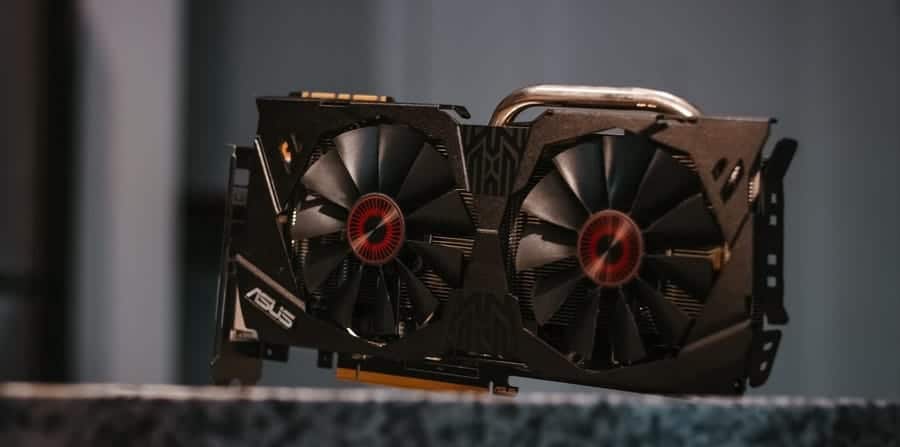If you’ve ever heard your fan running a mile a minute, it might be a sign that your graphics card is overheating. Though it’s a common hardware problem, it’s important to know the steps to diagnose and fix an overheated GPU, so you don’t experience performance issues with your computer.
Generally, a loud fan and graphics-related errors are common signs that the graphics card is overheating. This is typically the result of an overworked GPU, airflow obstruction, or restrictive space around the unit.
While you should expect your GPU to get hot, an overheated graphics card can put a strain on your entire system. Even worse, if you don’t address the issue, you could wind up with a permanently damaged graphics card. Read on to learn how to diagnose an overheated graphics card and what to do about it.
Why Is My Graphics Card So Hot?
Modern graphics processing units (GPUs) are built to withstand high temperatures since they are continually subjected to heavy loads that generate more heat. However, each one is rated to perform up to a certain temperature, and when that is exceeded, problems arise. While overheating concerns are more likely if your card isn’t a high-performance graphics card, they can still happen even in the best gaming computers.
Your GPU is most likely overheating because it cannot adequately cool itself. No matter what card you have, if your cooling system is malfunctioning, insufficient, or old, GPU overheating is unavoidable. Faulty cooling systems are commonly caused by impeded airflow, dried-out thermal paste, or restricted space on the unit’s outside.
Why Is My Graphics Card’s Fan So Loud?

Loud computer fans are overworked fans that can impact the overall performance of your PC. This is one of the earliest and most obvious symptoms of a graphic card overheating.
A noisy computer fan occurs when your computer generates a lot of heat, causing your computer’s fans to kick into action, driving hot air out of your PC and allowing cooler air to cycle in. This usually happens when the GPU fans are overworked due to overheating.
Dust and grime can also create a loud computer fan. This is an excellent opportunity to pull out the compressed air cans and blow your PC or laptop with clean air to clean it out.
How To Fix a Graphics Card That’s Overheating?
During typical operations, most computers should remain quite cool. A graphics card that overheats during regular use most certainly has an issue with it. If your graphics card is overheating during gaming, it’s an indication that the game and settings are overly demanding. A game will not destroy your computer. However, operating a GPU under high strain may reveal problems with your GPU cooling system.
If your GPU is often overheating, there are some things you may try to ensure that your system is running at top efficiency:
- Check the fan. The fans are the most crucial component for temperature control. Inspect your GPU’s fans to verify they are not damaged or obstructed. If the fans have physical damage, replace them right away.
- Clean the vents. One of the most common causes of GPU overheating is this. If you don’t clean your computer regularly, your GPU and computer fans are likely to be coated with dust. This problem is easily resolved by cleaning the graphics card and your computer fans, either with an air compressor or by wiping the fan blades with alcohol.
- Replace dried-out thermal paste. Overheating of the GPU can be caused by old thermal paste in a video card. Due to a lack of thermal paste, there is insufficient contact between the CPU and the heat sink, preventing your GPU from making proper use of the native cooling system. Simply change the thermal paste on your card to solve the problem.
- Reset clock speeds. Overclocking your GPU is a popular technique used to get more performance out of it. Unfortunately, it also puts more strain on the system, making it work harder and, as a result, causing the GPU to overheat. Returning it to the original clock rates may help with your problem.
If these don’t work, you may also want to check for software and hardware issues. Installations errors and interference between different components can cause hardware failure and a GPU to overheat.
What are The Best Graphics Cards on The Market?

If your GPU is giving you issues, it may be time for a replacement. A decent graphics card is essential to get the most out of your PC. It is required not only for gaming but also for other graphically intensive jobs like graphic design, 3D modeling, and video editing.
Here are some of the best options on the market right now:
- GIGABYTE AMD Radeon RX 6800 TX
- ZOTAC GAMING GeForce GTX 1650
- ASUS ROG STRIX NVIDIA GeForce RXT 3080
- ASRock RX 600 XT
- XFX Speedster MERC319 AMD RX 6900 XT
When choosing a GPU, you’ll want to consider memory, compatibility, and budget. You’ll also want to think about what you are going to use it for. What kinds of games do you like to play? Do you do things like video editing or is your computer usage more web browsing? This will help you determine what to look for in a graphics card.
Bottom Line

An overheating graphics card can be frustrating, and with the current market, finding a replacement can be a challenge. Now that you know what to look for, you will be better equipped to find the cause of an overheating GPU and handle it before it becomes a bigger issue. Remember to keep your fans clean to give your computer enough space to breathe.
